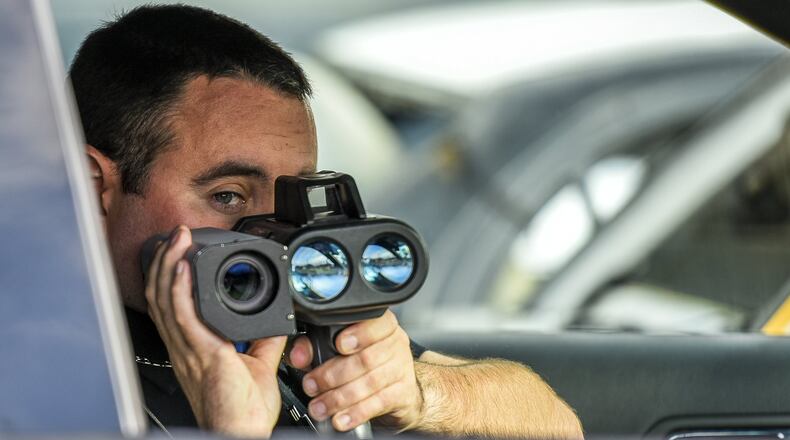The city of Middletown shuttered their cameras after the legislature tried ending speed cameras previously, by mandating the cameras be accompanied by a police officer in 2015.
“We have to dedicate an officer every day to review every violation, watch the videos, confirm the violation and send out. We don’t have the people to do that,” Muterspaw said. “We need our officers on the street and investigating crimes, not sitting at a desk watching for traffic violations.”
RELATED: Middletown won’t resume traffic cameras despite high court ruling
The Ohio Supreme Court has since deemed that law unconstitutional.
When the new state transportation bill passed, it reduced the amount of state financial aid local jurisdictions receive if they use speed cameras and added a new wrinkle mandating the courts decide speeding ticket disputes.
New Miami’s third-party vendor collected $352,681 in fines from speeders last year and forwarded $270,099 — the village’s share of the virtually automatic $95 ticket is 65 percent, or $61.75 — back to the village.
The state intends to reduce local government funds it sends to jurisdictions with speed cameras by the amount the village collects from speeders. The village received $52,448 in local government funds from the state last year.
New Miami Mayor Bob Henley said he is unconcerned about the potential loss of local government funds.
“I don’t really understand it because they’ve cut the small governments so much in the last few years anyway,” Henley said. “They send us hardly any money at all anymore. So big deal.”
But the new law also states if the municipality receives less from the state than it reaps in speeding ticket fines, then local government funds will be reduced for the next year as well.
The new state law that takes effect in July mandates the courts hear speeding ticket appeals, disallowing the administrative hearing method the village has employed. Since November, 113 drivers have asked a New Miami hearing officer to expunge the traffic tickets they received as a result of the speed cameras.
New Miami Solicitor Dennis Adams said he hasn’t had an opportunity to ask Hamilton Municipal Court Judge Dan Gattermeyer if he can handle the added caseload.
“I still have to have discussions with Judge Gattermeyer to determine if there is even docket space available to accommodate these hearings and work out the logistics of doing that,” Adams said, adding it could impact the future of the program.
“That’s going to be one of the deciding factors, obviously if Hamilton Municipal Court says that they can’t accommodate that docket then that very well may change the way we approach it.”
Ohio Supreme Court data show the judge handled 22,968 cases in 2017. Adams was under the impression Hamilton still had its speed cameras, so he worried the judge would be inundated.
MORE: New Miami mayor says lawsuit will likely come of new speed camera rules, but not from the village
Gattermeyer told the Journal-News while he doesn’t relish seeing his docket expand — he has the largest single judge caseload of all the municipal courts in the state — but he’ll have to.
“I don’t really have any choice,” Gattermeyer said. “They didn’t call ahead of time and say, ‘Hey, do you guys want to handle these?’ So we’ll handle them. I never really wanted to get involved in those traffic camera cases because they have always been controversial and so I never really was in love with that whole idea, but at this point we’ll handle whatever appeals we’re required to handle.”
Legislators have also mandated the speed camera jurisdictions have to pay court costs and “the court shall retain the advance deposit regardless of which part prevails prevails” and cannot assess alleged speeders any court costs or fees.
Adams said that is another topic he’ll be discussing with the judge.
Larger jurisdictions, like Dayton, have vowed to sue the state over this latest attempt to brake speed enforcement programs. Henley said the village will be on the side lines.
“I know there is a couple of the cities, the bigger cities that can afford to fight it, so my thought is I’ll let the big people fight it and we’ll do what we do,” Henley said. “They got a hell of a lot more money than we do to fight this.”
About the Author
